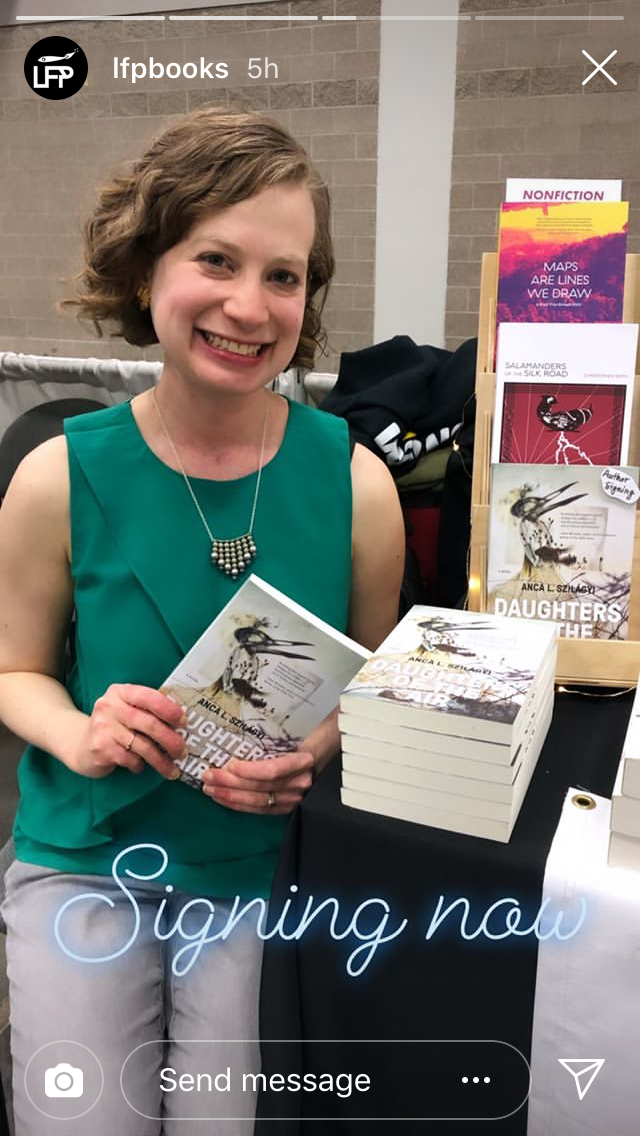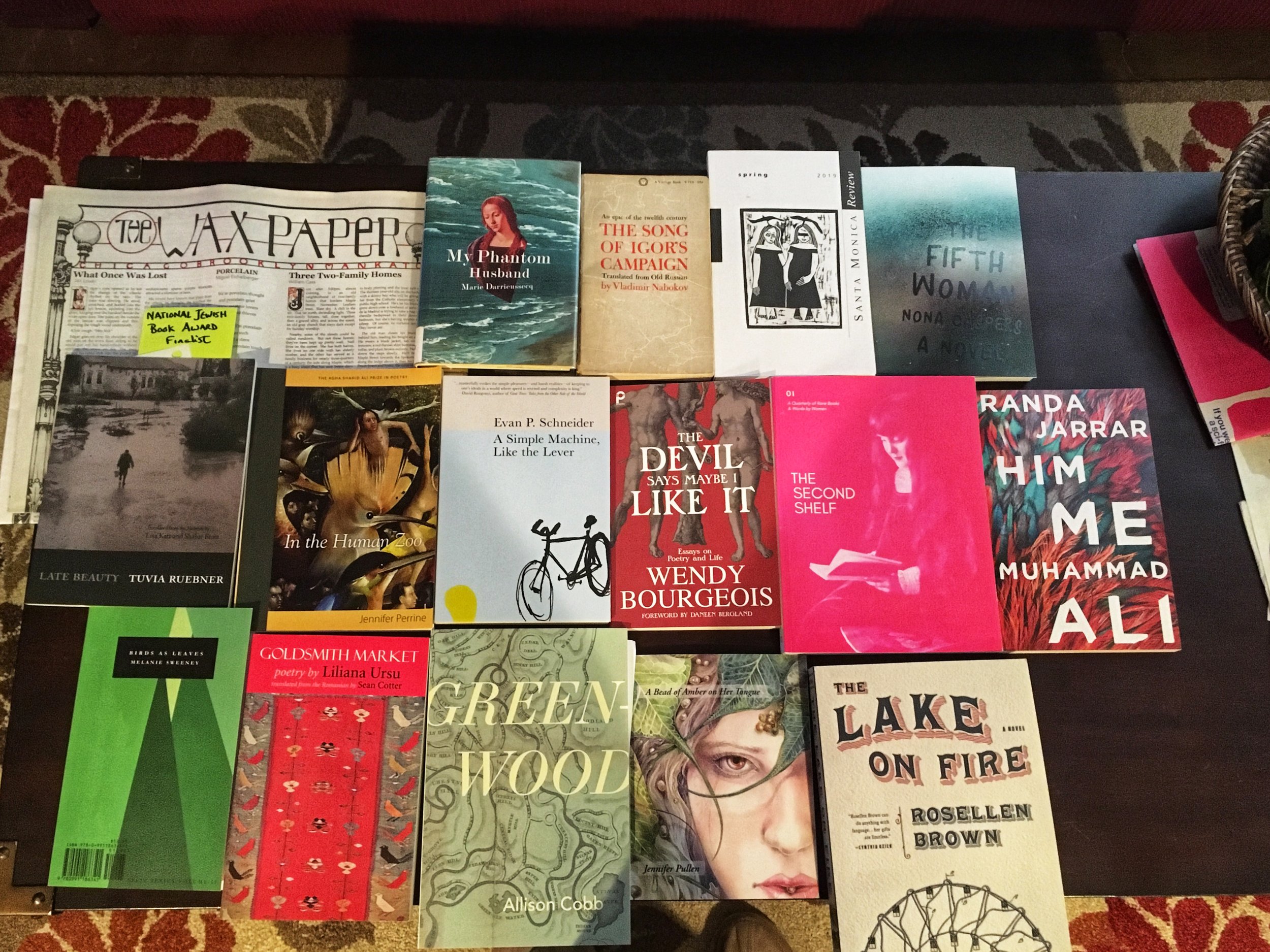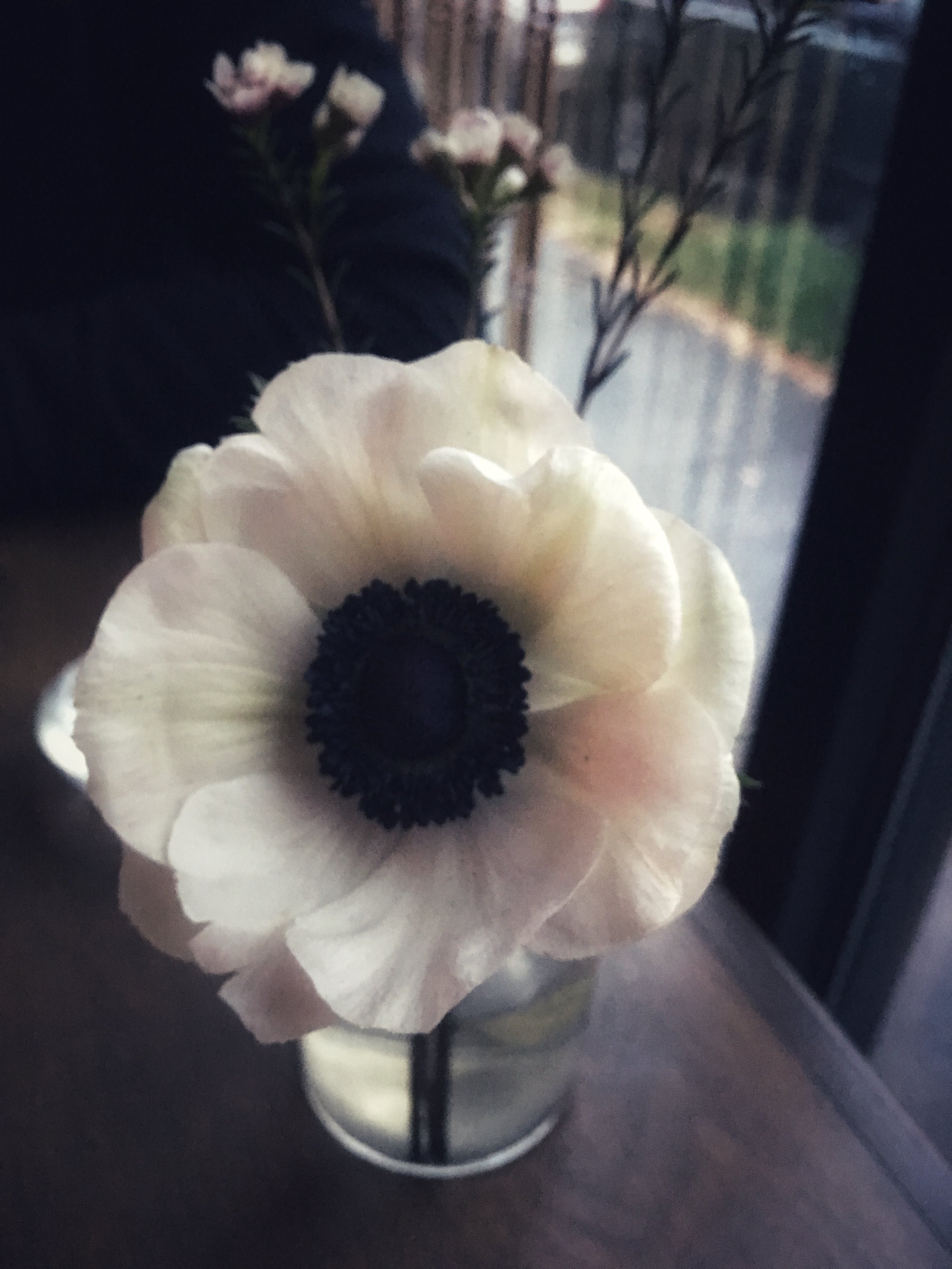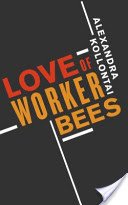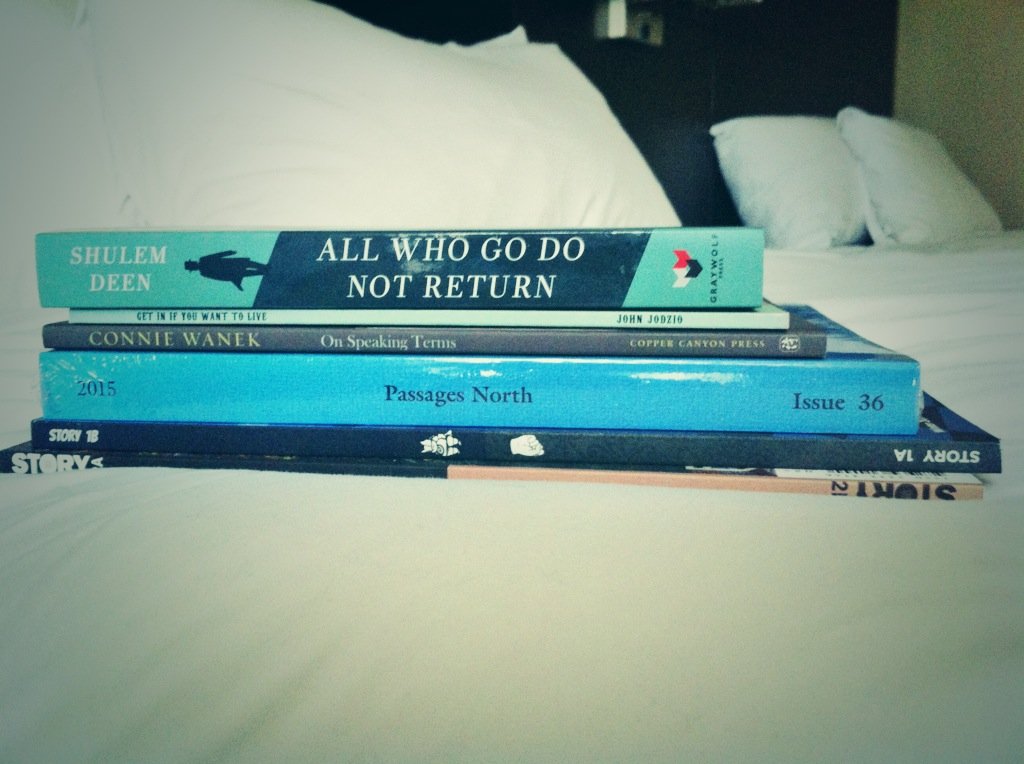This past weekend was my sixth time attending the AWP conference. My first was in New York in 2008, an overwhelming affair of 8,000 writers crammed into a couple Midtown hotels. That year, I sat on the floor beside a woman from Texas Tech who thought my plan to wait five years before getting an MFA was absurd. The next thing I knew, I was working as a paralegal to save money for graduate school, and by August 2009, I had a full ride to the University of Washington and Michael and I moved cross-country to Seattle. You could say that AWP changed our life pretty radically.
Over the years, we went to a smattering of conferences, but each year I went to fewer and fewer panels, as they tend to repeat and I learned you can only soak up so much information. In 2015 in Minneapolis, I mostly had lunch and dinner with friends, a most pleasant experience, but I'd realized the conference fee had been a waste. Next time, I resolved, I would go to AWP without going to AWP.
Last year in Tampa, with my novel just out, I didn't get to do that. But *this* year, in Portland, it finally happened, and I highly recommend it to folks who've been around the AWP block. I was more relaxed. More hydrated! I had time to stay on top of my online teaching, so less stressed.
Now for some highlights:
Wednesday night, we started at The Old Portland, a wine bar owned by Courtney Taylor-Taylor of the Dandy Warhols. They only serve old French wine; I misheard the description of the Corsican rosé as "foggy" and enjoyed it very much; Michael enjoyed a ten-year-old red Bordeaux. Then, the very Portland-y (more stoner than twee Portlandia) bartender said, "Yeah, we don't like advertise or anything," and showed us the Odditorium, the band's 10,000-foot "clubhouse," where they rehearse, record, film music videos, and the like. It was cavernous and quiet. Michael, a big Dandy Warhols fan, was in heaven.
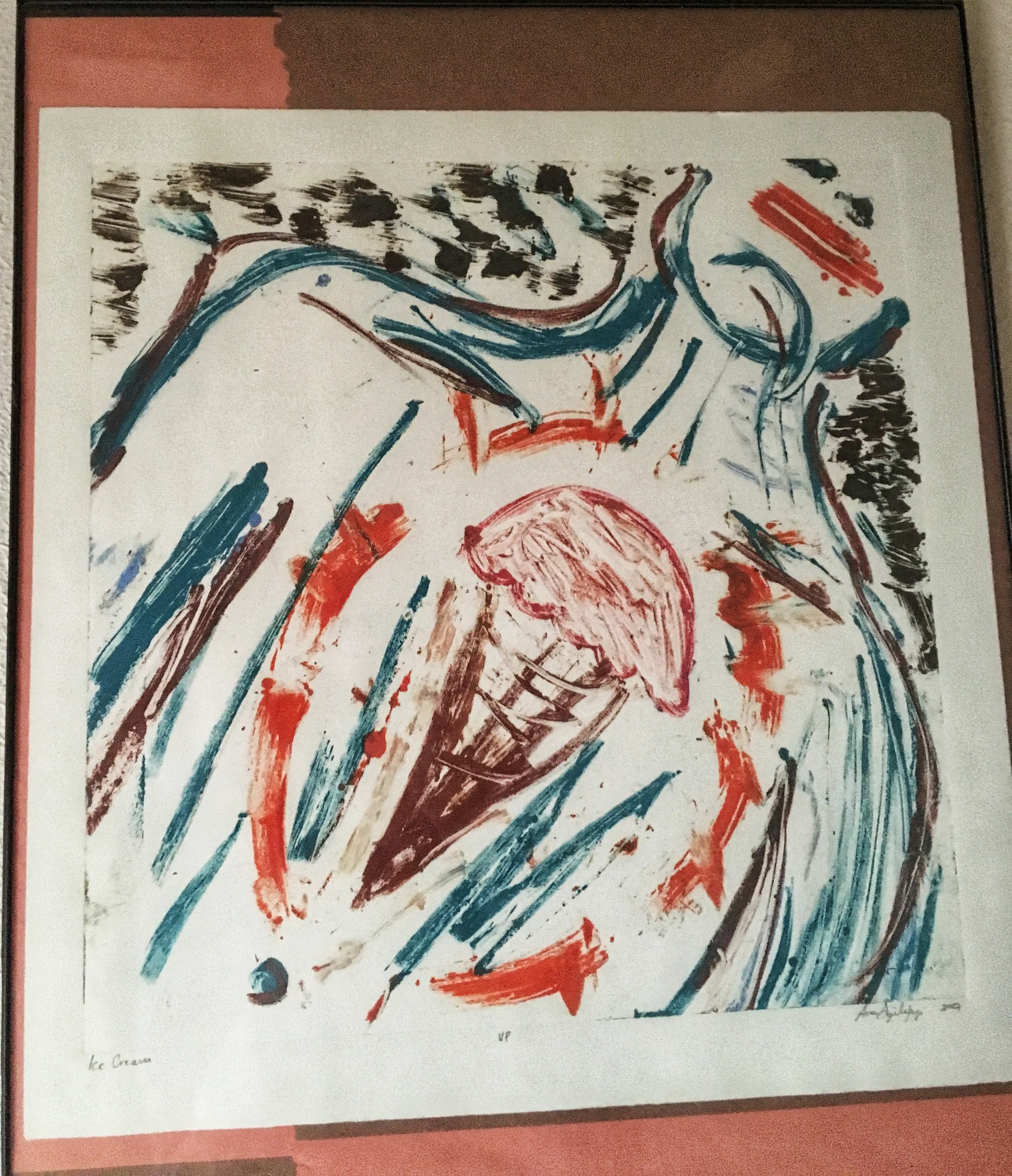
Thursday afternoon, we went to the Vermont Studio Center alumni happy hour. I'd finished a first draft of Daughters of the Air there back in 2007. Three former literary staff read poetry from their recent releases. A line from Nandi Comer's American Family: A Syndrome: "If there is blood, the artist has chosen to omit it." Ryan Walsh spoke of the connection between visual art and writing at VSC (I still cherish learning how to make a mono-print there) and vegetable poems. Zayne Turner read from "Her Radioactive Materials."
Most of the other readings I attended featured numerous readers, so, forthwith, more of a collage:
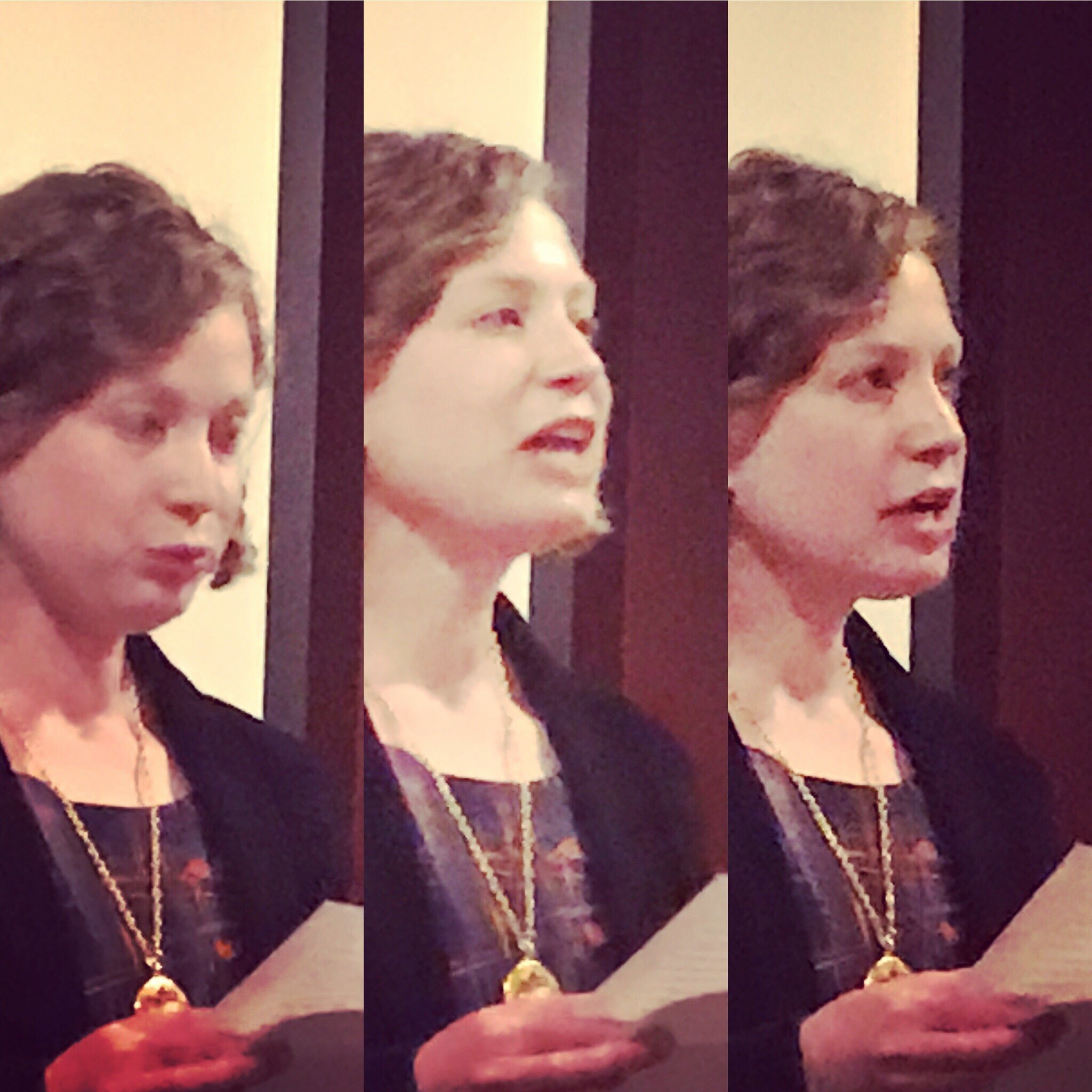
At Strange Theater: A Fabulist Reading, there were spiders and trousseaus and swans roasted in revenge and Japanese monsters and red rooms and porcine men and tyrants and cauliflower-fueled murder. A doll's head was raffled off, among other trinkets; I offered a rare talisman of Cyndi Lauper's trip to Yemen.
Friday, we went to the PageBoy Magazine Happy Hour, featuring 17-word poems and prose. It was a fun afternoon of zingy one-liners and dreamy experimental works and Gertrude Stein jokes. Then we were off to Literary Bingo with Lilla Lit, a new Portland-based reading series; it was fast and furious with four-minute readings (a loud buzzer ushered off writers going over). Chocolate was pelted at every shout of "bingo!"; I caught a peanut-butter ball overhead with my left hand and won a copy of Jennifer Perrine's In the Human Zoo. I also read a poem and someone won a copy of Daughters of the Air. All readings should have strict word and time limits and buzzers and prizes!
Saturday, we paid $5 to get into the convention center book fair. I had a lovely time chatting with Chicago-based folks in advance of our move (yes! big news tucked away over here; more on that in a future post), signing books at the Lanternfish Press table, and seeing fellow LFP authors Charles J. Eskew (Tales of the Astonishing Black Spark) and Andrew Katz (The Vampire Gideon's Suicide Hotline and Halfway House for Orphaned Girls). It was also super cool meeting Carmen Maria Machado, who signed Her Body and Other Parties and Carmilla, an LFP reprint of a lesbian vampire romance that predates Dracula, with a Borgesian introduction and footnotes by Machado.
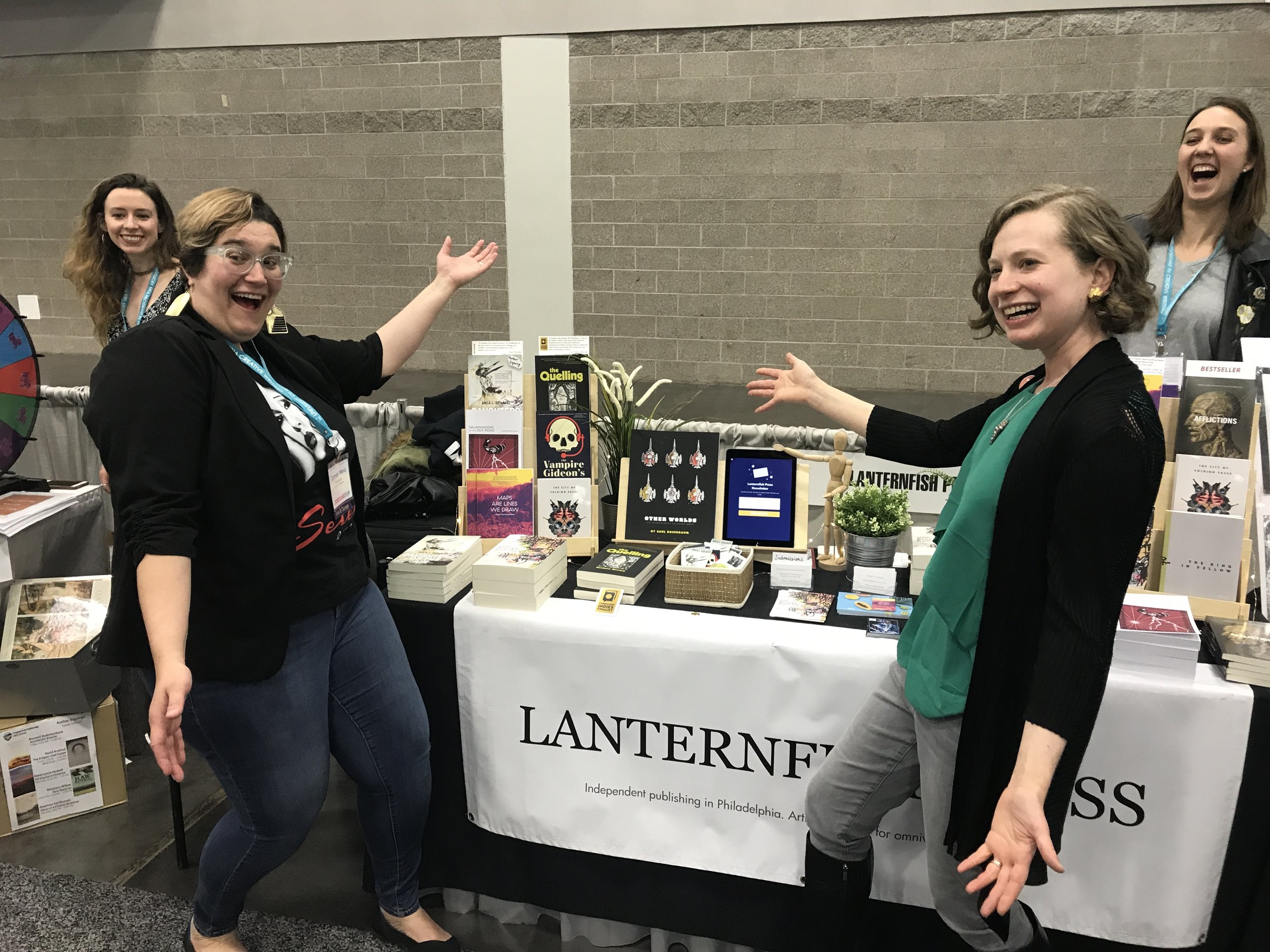
We also picked up a whole slew of poetry in translation (from Romanian and Hebrew), essays on art, novels, short story collections. I can't wait to read it all! Our last stop was the Northwest Micropress Fair at the Ace Hotel, where I signed copies of Sugar, my chapbook from Chin Music Press, and hung out with regional small presses, which felt like a special little send off before we leave the Pacific Northwest.
I heard that the conference had ballooned to 12,000 (15,000?) attendees. Amazing! Perhaps, perhaps, we'll be in San Antonio next year, and if not San Antonio, Kansas City, and if not Kansas City, Philadelphia...?

